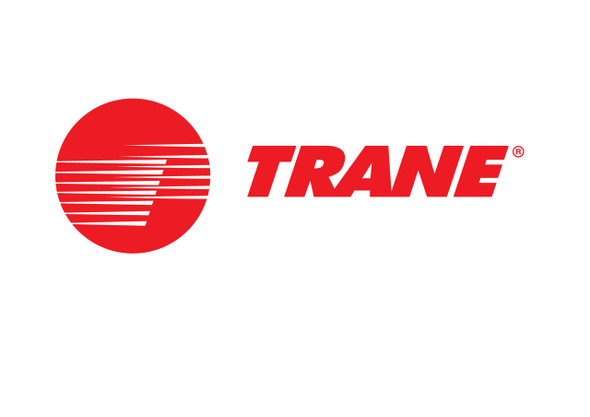Heat exchangers are integral components in HVAC systems, playing a crucial role in transferring heat efficiently between two fluids. They come in various types, including tube heat exchangers, plate heat exchangers, and double-pipe heat exchangers, each with unique advantages in different applications.
Before diving deeper into the world of heat exchangers, let’s briefly mention Furnace Parts Source. This is your go-to destination for top-quality furnace parts, offering a wide range of solutions tailored to your specific needs. Keep reading to discover how choosing the right heat exchangers can revolutionize your HVAC system’s efficiency.
Types of Heat Exchangers and Their Applications
Heat exchangers are categorized based on their design and the method of heat transfer. Let’s explore some of the most common types:
Tube Heat Exchangers
Tube heat exchangers, often referred to as shell and tube heat, are renowned for their robustness and efficiency. These exchangers consist of a series of tubes, with one fluid flowing through the tubes and another around them. They are highly effective in transferring heat, thanks to their heat transfer coefficient. Ideal for large-scale industrial applications, these exchangers can handle high-pressure and high-temperature operations.
Plate Heat Exchangers
Plate heat exchangers, on the other hand, use a series of thin plates to transfer heat. These exchangers are known for their high heat transfer coefficients and compact size, making them perfect for applications where space is a constraint. Their design allows for easy maintenance and cleaning, which is essential for maintaining efficiency in HVAC systems.
Double Pipe Heat Exchangers
Double-pipe heat exchangers, comprising one pipe within another, offer simplicity and ease of use. They are used in situations where the overall heat transfer coefficient is a critical factor. These exchangers come in two main configurations: parallel flow heat exchangers and counter flow heat exchangers. The choice between these configurations depends on the specific heat transfer requirements of your system.
Maximizing Efficiency with Heat Exchangers in Your HVAC System
Understanding how heat exchangers work is crucial for optimizing your HVAC system. The principle of heat transfer in these devices hinges on the heat transfer coefficient. This coefficient determines the efficiency of the heat exchanger: the higher the coefficient, the more efficient the heat transfer.
Heat Transfer in HVAC Systems
The core function of a heat exchanger in an HVAC system is to transfer heat from one medium to another without mixing them. This is essential in processes like heating, cooling, or refrigeration. The overall heat transfer coefficient is a key metric that helps you understand how well your heat exchanger performs under different conditions. It’s important to choose a heat exchanger with an appropriate coefficient for your specific HVAC requirements.
Maintenance and Upkeep of Heat Exchangers
Regular maintenance is vital to keep heat exchangers operating at peak efficiency. This includes routine cleaning to prevent fouling, which can significantly impact the heat transfer performance. For example, in a tube heat exchanger, ensuring the tubes are free from deposits can greatly enhance the system’s efficiency. Similarly, for plate heat exchangers, checking the integrity of the plates and seals can prevent leaks and maintain optimal performance.
Selecting the Right Heat Exchanger for Your HVAC System
Choosing the right heat exchanger can be a game-changer for your HVAC system’s efficiency. Here’s what you need to consider:
Understanding Your System’s Requirements
Every HVAC system has unique requirements based on the environment it operates in. Factors such as the temperature range, fluid properties, and space constraints play a crucial role in determining the type of heat exchanger you need. Whether it’s a tube heat exchanger for high-temperature industrial applications or a compact plate heat exchanger for a space-restricted commercial setting, understanding your system’s needs is the first step.
Evaluating Heat Exchanger Materials
The material of your heat exchanger significantly impacts its performance and longevity. Materials like stainless steel and titanium offer resistance to corrosion and are suitable for harsh environments. The choice of material also affects the heat transfer coefficient, influencing the efficiency of the heat exchange process.
Innovations and Advances in Heat Exchanger Technology
Staying abreast of the latest advancements in heat exchanger technology can provide you with a competitive edge. Here’s a glimpse into recent innovations:
Enhanced Heat Transfer Techniques
Recent developments in heat transfer technology focus on enhancing the efficiency of heat exchangers. Innovations like improved fin designs in tube heat exchangers and advancements in plate designs for plate heat exchangers are making systems more efficient and cost-effective.
Eco-friendly and Energy-efficient Solutions
The push towards sustainability has led to the development of more eco-friendly and energy-efficient heat exchangers. These advancements not only help in reducing operational costs but also contribute to a lower environmental footprint.
Trust Furnace Parts Source for Your Heat Exchanger Needs
In summary, the right heat exchanger can significantly boost the efficiency and performance of your HVAC system. By understanding the different types of heat exchangers and their specific applications, you can make an informed decision that benefits your facility in the long run.
Furnace Parts Source is here to guide you through this process. With our wide array of high-quality heat exchangers and expert advice, you can find the perfect solution for your unique requirements. Our commitment to quality and customer satisfaction ensures that you get the best value for your investment.
We invite you to contact our team at Furnace Parts Source today. Let us help you enhance your HVAC systems with the right furnace parts and heat exchangers. Reach out to us for expert guidance and solutions tailored to your specific needs.





